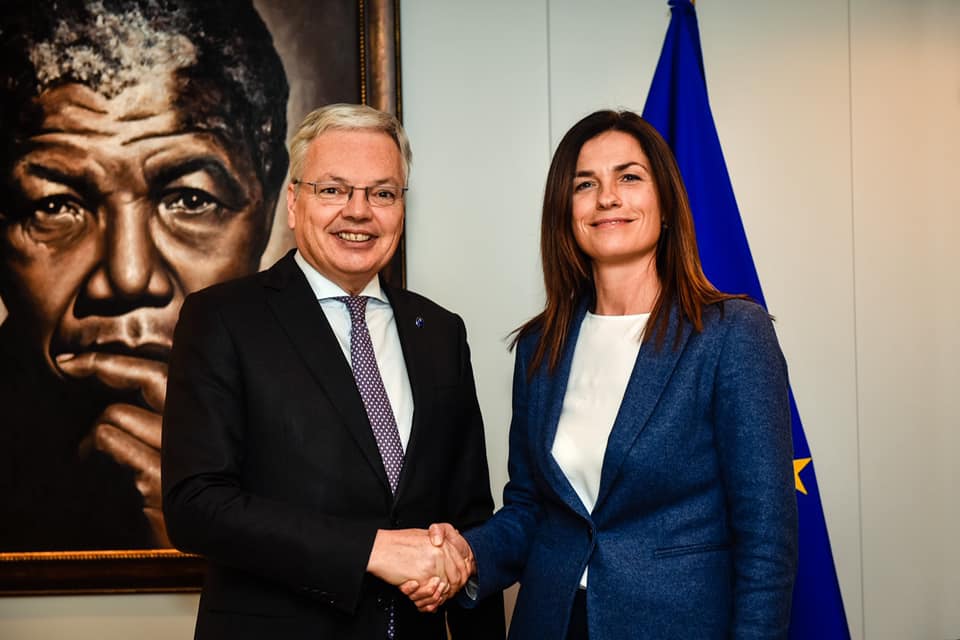
After eight months of intense negotiations, a technical agreement has been reached between Budapest and Brussels on Hungarian judicial reforms needed to unlock the €27 billion in EU cohesion and pandemic recovery funds, Hungarian Justice Minister Judit Varga announced on Monday, April 24th.
“This morning I had a constructive discussion [with] Justice Commissioner [Didier Reynders]. Technical negotiations on the judicial commitments have been concluded,” Varga wrote on her Twitter page announcing the news. However, she added that a formal conclusion is still in the hands of the European Commission, saying that now “we wait for the decision of the College of Commissioners.”
Technical #agreement on the judicial package❗️
— Judit Varga (@JuditVarga_EU) April 24, 2023
This morning I had a constructive discussion w/ Justice Commissioner @dreynders. Technical negotiations on the judicial commitments have been concluded. We wait for the decision of the College of Commissioners.
Go, Hungary! 🇭🇺✌🏻 pic.twitter.com/Hp0SUrKzrD
Commissioner Reynders also tweeted about the meeting on his page, noting that the “technical discussions between [Hungary and the EU] have progressed well,” and “further internal steps will follow for the Commission to analyze the progress made.”
During a panel discussion organized by MCC Brussels later that day, the justice minister elaborated on the details of the negotiations that now seem to be finally ending. Varga noted that it was a hard and long process, and that the Commission kept adding further requirements, complicating the issue.
Nonetheless, Budapest was “able to translate these requests into technicalities and integrate them into the [reform] package,” Varga said, after explaining that the first stage was negotiating what the reforms should be about in principle, while the second was working out all the technical details. Now they only need an official acknowledgment from the Commission, as “we did our homework 120%.”
Apparently, the progress didn’t escape Reynders either. According to Varga, the Commissioner told her he “was fine with the text now,” and he was “putting it up for political decision.”
The minister also recounted that the Hungarian government was, at first, reluctant to join the pandemic recovery plan because it involved getting a joint loan at the EU level, raising the public debt of the entire bloc. According to Varga, Budapest wanted to avoid outsourcing the costs of the economic recovery to the next generation, but decided to join anyway to help out other member states whose economies were more severely affected by COVID-19.
But then, by the time the money was ready to be disbursed to the member states, Hungary found itself unable to access any of it. Due to what Hungary says were political motivations, the Commission decided to invoke the rule of law mechanism against the country, withholding billions of euros in recovery (and cohesion) funds until sufficient reforms were enacted, particularly in the judicial system.
“The mother did not get the money but the children will have to pay it back,” Varga summarized Hungary’s situation during the past year.
But the journey appears to be at its end, at last. Even though some of the reforms were seen as unnecessary or even alien to the Hungarian judicial system, Varga said, they have all been implemented. “We made sacrifices, we made all the changes they requested,” she said, “and now we’re on a good path” towards unlocking the frozen funds.
